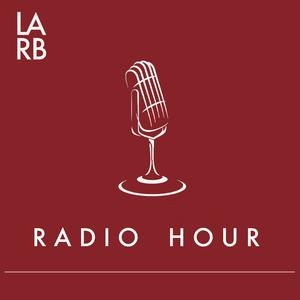
Smarty Pants
A podcast from The American Scholar magazine
- 57 minutes 41 secondsChanging the Lens
Over the course of our miniseries Exploding the Canon, Smarty Pants host Stephanie Bastek has examined Reed College students’ efforts in 2016–2017 to fundamentally transform a mandatory freshman humanities course. Now, in the final episode, Bastek looks at how much has really changed since that time. The protestors were ostensibly successful—the Humanities 110 syllabus underwent significant revision. But though the college has bolstered several support programs for students of color, in the last decade Black, Latino, and Indigenous student enrollment at Reed has not increased. Some professors are satisfied with the current humanities program; others would like to see more change. Perhaps the fundamental lesson to be gained from Reed’s upheaval is that the work is hardly finished—and a way forward might be found in how classicists have radically reimagined their discipline in recent years.
Please visit our episode page for a full list of links
- Reed College Office of Institutional Research data on historical enrollment by ethnicity (2002–2024)
- The 2023–24 Hum 110 syllabus, with timelines and maps
Featured voices in this episode: Salim Moore, Brittany Wideman, Paul Marthers, Mary James, Nigel Nicholson, Kritish Rajbhandari, Pancho Savery, Milyon Trulove, alea adigweme, Mary Frankie McFarland Forte, Dan-el Padilla Peralta, T. H. M. Gellar-Goad, Sasha-Mae Eccleston, Jan Mieszkowski, Colin Drumm, Albert Kerelis, Peter Steinberger, Kambiz GhaneaBassiri, and Addison Bates. Thanks to the Reed staff, faculty, and students—past and present—who made this series possible.
Produced and hosted by Stephanie Bastek. Original music by Rhae Royal. Audio storytelling consulting by Mickey Capper.
Subscribe: iTunes/Apple • Amazon • Google • Acast • Pandora • RSS Feed
Hosted on Acast. See acast.com/privacy for more information.
10 May 2024, 6:04 pm - 28 minutes 37 secondsIn Memoriam: American Modernism’s Lost Boy-King
We were saddened to learn of Paul Auster’s passing on April 30, at the age of 77. In his memory, revisit this interview, which originally ran on November 5, 2021, on the late author’s favorite writer: Stephen Crane. Exploding the Canon will return next week.
In his decades-long career, the writer Paul Auster has turned his hand to poems, essays, plays, novels, translations, screenplays, memoirs—and now biography. Burning Boy explores the life and work of Stephen Crane, whose short time on earth sputtered out at age 28 from tuberculosis. Like his biographer, Crane, too, spanned genres—poetry, novels, short stories, war reporting, and semi-fictional newspaper “sketches”—striking it big in 1895 with The Red Badge of Courage, which was widely celebrated at the time and is still regarded as his best work. But in Auster’s estimation, the rest of Crane’s output (and there is a surprising amount of it) is sorely neglected, and the pleasure of Burning Boy lies in reading one of the 19th century’s finest writers alongside one of today’s. Paul Auster joins the podcast to talk about the task of restoring Stephen Crane to the American canon.
Go beyond the episode:
- Paul Auster’s Burning Boy
- Read Steven G. Kellman’s review, “Poet of the Extreme”
- Eager for a taste of Stephen Crane beyond the novels? We recommend The Black Riders and Other Lines and “The Open Boat”
Subscribe: iTunes/Apple • Amazon • Google • Acast • Pandora • RSS Feed
Hosted by Stephanie Bastek. Theme music by Nathan Prillaman. Have suggestions for projects you’d like us to catch up on, or writers you want to hear from? Send us a note: podcast [at] theamericanscholar [dot] org. And rate us wherever you listen!
Hosted on Acast. See acast.com/privacy for more information.
3 May 2024, 5:50 pm - 49 minutes 48 secondsLet Us Compare Mythologies
Reedies Against Racism’s protest of the Humanities 110 curriculum at Reed College reached a turning point in the 2017–2018 school year. After a year and a half of debate, dozens of faculty members voted on a revised syllabus, the second semester of which introduced brand new material from Mexico City and the Harlem Renaissance. But in September 2018, an entire department voted not to teach the spring syllabus—and as the years passed, discontent with the syllabus grew, among both faculty and students.
Visit our website for a transcript and links to documents and articles mentioned in the episode.
Featured voices in this episode: Addison Bates, Eden Daniel, Mary James, Libby Drumm, Roger Porter, Jan Mieszkowski, Pancho Savery, Kambiz GhaneaBassiri, Peter Steinberger, Nathalia King, Kritish Rajbhandari, Nigel Nicholson, and Albert Kerelis.
Produced and hosted by Stephanie Bastek. Original music by Rhae Royal. Audio storytelling consulting by Mickey Capper.
Subscribe: iTunes/Apple • Amazon • Google • Acast • Pandora • RSS Feed
Correction: The original episode misrepresented the faculty composition of the Religion department after it stopped teaching in Humanities 110; when the tenured faculty member in question retired, the relevant committee approved a visiting position rather than a tenure-track appointment.
Hosted on Acast. See acast.com/privacy for more information.
26 April 2024, 7:56 pm - 29 minutes 27 secondsInterlude: The Idea of “The West”
This week, Smarty Pants host Stephanie Bastek revisits a conversation from 2023 that originally sparked her desire to return to the debate over Humanities 110 at Reed College. The idea of “Western civilization” looms large in the popular imagination, but it’s no longer taken seriously in academia. In her book, The West: A New History in Fourteen Lives, historian Naoíse Mac Sweeney examines why the West won’t die and, in the process, dismantles ahistorical concepts like the “clash of civilizations” and the notion of a linear progression from Greek and Roman ideals to those of our present day—“from Plato to NATO.” Through biographical portraits of figures both well-known and forgotten—Herodotus and Francis Bacon, Livilla and Phyllis Wheatley, Tullia d’Aragona and Abu Yusuf Yaqub ibn Ishaq al-Kindi—Mac Sweeney assembles a history that resembles less of a grand narrative than a spiderweb of influence. Successive empires (whether Ottoman, Holy Roman, British, or American) built up self-mythologies in the service of their expansionist, patriarchal, or, later, racist ideologies. Mac Sweeney joins the podcast to talk about why the West has been such a dominant idea and on what values we might base a new vision of contemporary “western” identity.
Go beyond the episode:
- Naoíse Mac Sweeney’s The West: A New History in Fourteen Lives
- In “Claiming the Classical,” Mac Sweeney and her co-authors examine how classical antiquity is used by 21st-century political actors
Subscribe: iTunes/Apple • Amazon • Google • Acast • Pandora • RSS Feed
Hosted by Stephanie Bastek. Theme music by Nathan Prillaman. Exploding the Canon returns next week.
Hosted on Acast. See acast.com/privacy for more information.
19 April 2024, 4:01 am - 42 minutes 13 secondsThe Spirit of ’68
This week, Smarty Pants host and Scholar senior editor Stephanie Bastek delves into the history of Black Studies at her alma mater, Reed College, drawing connections between the fight for a Black Studies program in 1968 and the efforts of Reedies Against Racism to diversify the college’s mandatory freshman humanities course 48 years later. Speaking with former students and members of Reed’s Black Student Union, Bastek recounts the 1968 BSU occupation of Eliot Hall, one of the largest buildings on campus, as part of the campaign for a Black Studies program. The program was established, but not without backlash—and rifts among faculty members would threaten Reed's foundation for decades to come.
- Read Martin White’s essay, “The Black Studies Controversy at Reed College, 1968–1970” in the Oregon Historical Quarterly
- In Memoriam: Linda Gordon Howard, Calvin Freeman
- Visit our episode page to see more of Stephen Robinson's photographs from 1968
- Transcript available on our website
Featured voices in this episode: Andre Wooten, Mary Frankie McFarlane Forte, Martin White, Stephen Robinson, Roger Porter, George Brandon, Steve Engel, and Suzanne Snively. Ron Herndon oral history audio courtesy of the Oregon Historical Society. Archival recording of the October 28, 1968 BSU town hall featuring Cathy Allen and Ron Herndon courtesy of the Reed College Library.
Produced and hosted by Stephanie Bastek. Original music by Rhae Royal. Audio storytelling consulting by Mickey Capper.
Subscribe: iTunes/Apple • Amazon • Google • Acast • Pandora • RSS Feed
Hosted on Acast. See acast.com/privacy for more information.
12 April 2024, 5:53 pm - 31 minutes 2 secondsReedies Against Racism
The autumn of 2016 at Reed College was tumultuous. On September 26, students organized a boycott of classes in response to recent police killings of Black people, both to allow time to mourn and to highlight the ways in which they felt Reed was failing people of color. They also put forward a list of demands—including an overhaul of the mandatory freshman humanities course, Humanities 110, which, they alleged, focused too narrowly on European history and ideas, wrongly discounting the contributions of other cultures. That same week, they would begin a year-long occupation of Vollum Hall, where lectures were held, thereby creating fissures among the faculty and kickstarting the process of changing the course.
- RAR’s 25 demands
- Reed’s November and December 2016 Progress Reports in response
Featured voices in this episode: Addison Bates, Eden Daniel, alea adigweme, Kambiz GhaneaBassiri, Peter Steinberger, Jan Mieskowski, Pancho Savery, Mary James, Nathalia King, and Mary Frankie McFarlane Forte. Newsreel: KOIN News.
Produced and hosted by Stephanie Bastek. Original music by Rhae Royal. Audio storytelling consulting by Mickey Capper.
Subscribe: iTunes/Apple • Amazon • Google • Acast • Pandora • RSS Feed
Transcript available on our episode page.
Hosted on Acast. See acast.com/privacy for more information.
4 April 2024, 10:01 pm - 30 minutes 53 secondsSing, Muse
At Reed College in 2016, a student group named Reedies Against Racism began protesting the syllabus of the mandatory freshman humanities course and the college’s perceived failure to support Black students. After a year of sustained action, the students won the largest-ever revision of Humanities 110—but half a decade on, emotions are still raw. Smarty Pants host Stephanie Bastek graduated from Reed in 2013, and she returned last year to find out how much the culture had really changed.
Humanities 110 Syllabi: 2009-10, 2016-17, 2023-24
Visit our episode page for a visual representation of the regions of study in Hum 110, 1944–2015 (graph by Michael Song)
Featured voices in this episode: Nigel Nicholson, Jan Mieszkowski, Peter Steinberger, Nathalia King, Kambiz GhaneaBassiri, Pancho Savery, Libby Drumm, and Eden Daniel. Reed College documentary audio from Give Up Steam (1991) by Daniel Levin. Newsreel commentators: Michael Jones and Jennifer Kabbany. Transcript available on our episode page.
Produced and hosted by Stephanie Bastek. Original music by Rhae Royal. Audio storytelling consulting by Mickey Capper.
Follow The American Scholar on Twitter and Instagram.
Hosted on Acast. See acast.com/privacy for more information.
29 March 2024, 7:00 am - 4 minutes 14 secondsTrailer: Exploding the Canon
Smarty Pants returns on March 29 with a new miniseries: Exploding the Canon, about an all-out culture war at Reed College. In 2016, a student group named Reedies Against Racism began protesting the syllabus of the mandatory freshman humanities course and the college’s failure to support Black students. After a year of sustained protest, the students won the largest-ever revision of Humanities 110—but half a decade on, emotions are still raw. Smarty Pants host Stephanie Bastek graduated from Reed in 2013, and she returned last year to find out how much Reed’s culture had really changed.
Trailer produced by Mickey Capper. Original music by Rhae Royal.
Hosted on Acast. See acast.com/privacy for more information.
18 March 2024, 8:25 pm - 37 minutes 48 seconds#291: Dancing the Imperial Twist
In our Summer 2023 issue, Julian Saporiti writes about the George Igawa Orchestra, which entertained thousands of incarcerated Japanese Americans at a World War II internment camp in Heart Mountain, Wyoming. But Saporiti, who releases music as No-No Boy, has been singing about the “best god damn band in Wyoming” since 2021, when his album 1975 came out. No-No Boy—named for the Japanese Americans who twice answered “no” on a wartime loyalty questionnaire—has been releasing songs about forgotten pockets of Asian-American history for years: Burmese migrants, Cambodian kids whose parents survived the Khmer Rouge, Saigon teens, and his mother’s experience as a Vietnamese refugee of an American war. We caught up with Saporiti at the Smithsonian Folklife Festival, where he performed a set in celebration of the 75th anniversary of Smithsonian Folkways, to talk about reciprocity, scholars by waterfalls, and how to smuggle in history with a few strummed chords.
Go beyond the episode:
- Listen to No-No Boy’s previous two albums, 1975 and 1942, and pre-order the next release
- Read “Last Dance,” Saporiti’s story of the George Igawa Orchestra
- Unfamiliar with the history of the no-no boys? Listen to our interview with Frank Abe about John Okada’s seminal novel No-No Boy about a Nisei draft-resister
Tune in every week to catch interviews with the liveliest voices from literature, the arts, sciences, history, and public affairs; reports on cutting-edge works in progress; long-form narratives; and compelling excerpts from new books. Hosted by Stephanie Bastek. Follow us on Twitter @TheAmScho or on Facebook.
Subscribe: iTunes • Stitcher • Google Play • Acast
Have suggestions for projects you’d like us to catch up on, or writers you want to hear from? Send us a note: podcast [at] theamericanscholar [dot] org. And rate us on iTunes! Our theme music was composed by Nathan Prillaman.
Hosted on Acast. See acast.com/privacy for more information.
4 August 2023, 1:08 pm - 31 minutes 36 seconds#290: Dying for Fashion
Longtime style reporter Dana Thomas’s book, Fashionopolis, is an indictment of the true costs of fashion—like poisoned water, crushed workers, and overflowing landfills—that never make it onto the price tag of a dress or pair of jeans. Between 2000 and 2014, the annual number of garments produced doubled to 100 billion: 14 new garments per person per year for every person on the planet. The average garment is only worn seven times before being tossed—assuming it’s not one of the 20 billion clothing items that go unsold and unworn. It’s no surprise, then, that the fashion industry accounts for at least 10 percent of global carbon emissions and 20 percent of all industrial water pollution. Though the industry employs one out of every six people globally, fewer than two percent of them earn a living wage—more than 98 percent of workers are not only underpaid, they also toil in unsafe, unsanitary conditions. But change is underfoot: retailers are shifting their supply models, circular and slow fashion are on the rise, and new technology is making the manufacture of new and recycled fabrics cleaner. Dana Thomas joins the podcast to explain what will be required to fix a broken system. This episode originally aired in 2019.
Go beyond the episode:
- Dana Thomas’s Fashionopolis: The Price of Fast Fashion and the Future of Clothes
- Thomas’s tips for weaning yourself off fast fashion
- Why donating secondhand clothes to developing countries can actually prevent development—and kill local textile industries
- What is “slow fashion”? The New York Times explains
- Martha Stewart teaches Clothing Repair 101
Tune in every week to catch interviews with the liveliest voices from literature, the arts, sciences, history, and public affairs; reports on cutting-edge works in progress; long-form narratives; and compelling excerpts from new books. Hosted by Stephanie Bastek. Follow us on Twitter @TheAmScho.
Subscribe: iTunes • Stitcher • Google Play • Acast
Have suggestions for projects you’d like us to catch up on, or writers you want to hear from? Send us a note: podcast [at] theamericanscholar [dot] org. And rate us on iTunes! Our theme music was composed by Nathan Prillaman.
Hosted on Acast. See acast.com/privacy for more information.
28 July 2023, 4:01 am - 26 minutes 47 seconds#289: On the Line
Atlantic bluefin tuna have been swimming in our oceans, and in the human imagination, for millions of years. Topping out at more than 1,500 pounds apiece, these apex predators face their greatest threat not from sharks or a dwindling food supply but from our unwillingness to stop overfishing them (to say nothing of the occasional catastrophic oil spill). But our understanding of how these majestic creatures navigate the ocean, defined by an imaginary line through the middle of the Atlantic, has been challenged by recent discoveries—and the life story of one tuna in particular. Karen Pinchin’s new book, Kings of Their Own Ocean, tells the story of that fish: an Atlantic bluefin named Amelia, tagged in 2004 by the fisherman Al Anderson off the coast of Rhode Island and recaptured twice more before her ultimate death in the Mediterranean. Pinchin joins the podcast to talk about what Amelia’s tale has to tell us about fishing and climate, science and commerce, and the future of the seas.
Go beyond the episode:
- Karen Pinchin’s Kings of Their Own Ocean: Tuna, Obsession, and the Future of Our Seas
- Let the Monterey Bay Aquarium’s Seafood Watch do the work of choosing sustainable seafood for you (you can even download and print little pocket guides for each region—en español tambien!)
- In our Winter 2023 issue, Juli Berwald considered what coral might teach us about avoiding ecological catastrophe
- John Dos Passos loved fishing for tuna just as much as Papa Hemingway did
- Anna Badhken spoke to us in 2018 about how overfishing and warming waters have devastated a Senegalese fishing community
Tune in every week to catch interviews with the liveliest voices from literature, the arts, sciences, history, and public affairs; reports on cutting-edge works in progress; long-form narratives; and compelling excerpts from new books. Hosted by Stephanie Bastek.
Subscribe: iTunes • Stitcher • Google Play • Acast
Have suggestions for projects you’d like us to catch up on, or writers you want to hear from? Send us a note: podcast [at] theamericanscholar [dot] org. And rate us on iTunes!
Hosted on Acast. See acast.com/privacy for more information.
21 July 2023, 4:01 am - More Episodes? Get the App
Your feedback is valuable to us. Should you encounter any bugs, glitches, lack of functionality or other problems, please email us on [email protected] or join Moon.FM Telegram Group where you can talk directly to the dev team who are happy to answer any queries.
 The World in Time / Lapham’s Quarterly
The World in Time / Lapham’s Quarterly
 The Harper’s Podcast
The Harper’s Podcast
 Soundings from The New York Review
Soundings from The New York Review
 LA Review of Books
LA Review of Books
 The Archive Project
The Archive Project
 LARB Radio Hour
LARB Radio Hour